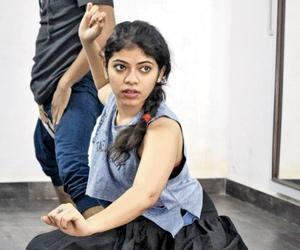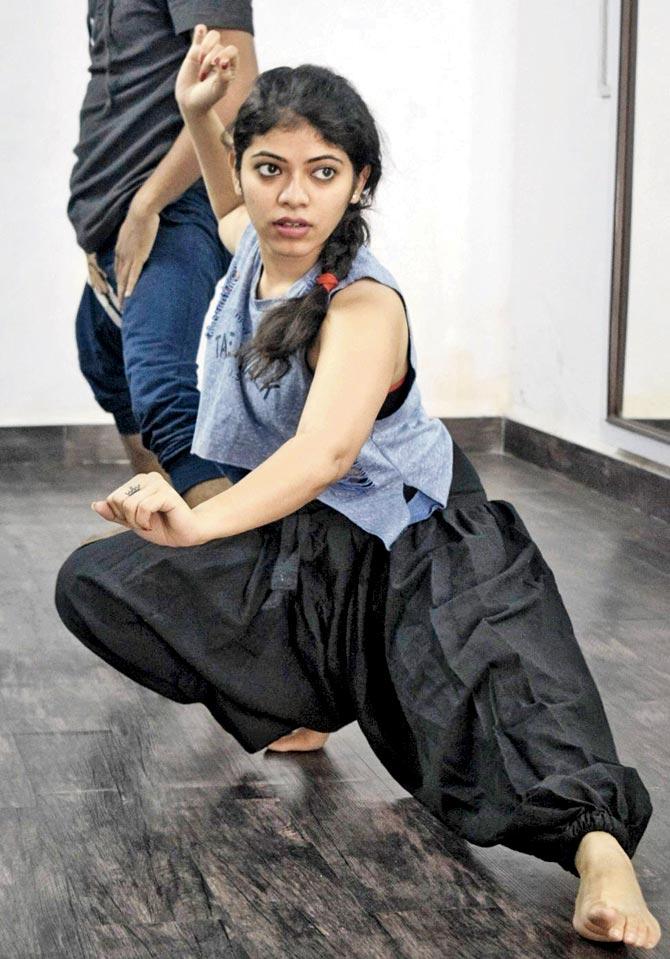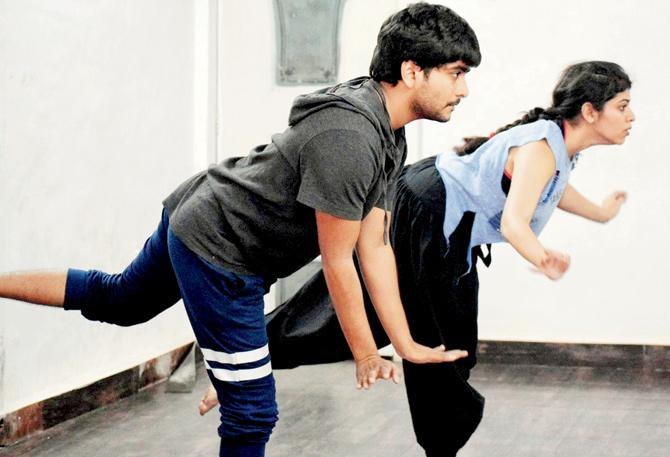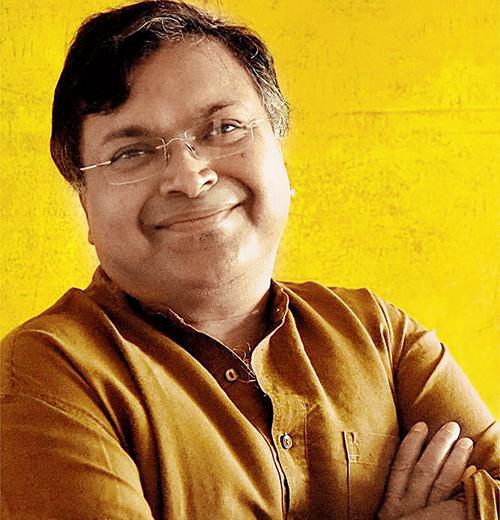There are different brushes with which people have painted the character of Sita over the years. Some view her as the embodiment of feminine ideals, ascribing the role of "Sita Maiya" to her as a beacon of inspiration for the modern-day wife


Kiran Pavaskar rehearses for Sita
ADVERTISEMENT
There are different brushes with which people have painted the character of Sita over the years. Some view her as the embodiment of feminine ideals, ascribing the role of "Sita Maiya" to her as a beacon of inspiration for the modern-day wife. For others, she is a fallen woman, whose period of captivity in Ravana's lair throws her moral standing open to circumspection. A feminist approach might portray her as a submissive person, who pandered to the whims and fancies of her powerful husband. But a counter to that viewpoint is that Sita was merely being supportive, as every partner even in 21st-century relationships should be, regardless of gender.
Kiran Pavaskar, however, feels that she is merely the Juliet to Ram's Romeo if we view the Ramayana through the lens of a tragic love story. A founder member of Kirdaar Arts Foundation, Pavaskar will stage a solo performance this weekend based on Devdutt Patnaik's book, Sita, which retells the story with its principal female character as the narrator. And in doing so, she will shed light on the mystique surrounding one of the Indian epic's most complex, and maybe even misunderstood, protagonists.

For example, what really led Ram to believe that his wife had given herself up to Ravana when she was his prisoner? Pavaskar tells us, "See, when Ravana abducted Sita for a year and took her to Ashok Vatika [a garden in Lanka], she was there with his family. And the women over there — like Sujata, Ravana's niece — took really good care of her. So, when she went back to Ayodhya, she really missed those moments and shared the memories with her friends and daasis. But this was misinterpreted by those people, which led to whispers and rumours that there might have been more to Sita's stay with Ravana, and she wasn't over it yet. That changed the whole perception about her."

Devdutt Pattanaik
But at the same time, Pavaskar also seeks to deflect some of the unwarranted criticism directed at Ram about what might be called an overtly patriarchal nature. She says, "A part of the performance focuses on how Ram thought about Sita, but was also forced to keep his subjects in mind. No one can deny that his kingdom put a burden on his shoulders — he had to constantly think about the people, and about what they would say about his family's reputation. And I would say that this holds true even today. Sometimes, it so happens that the husband doesn't take his wife's side, but instead takes his mother's or family's side. That amounts to the same predicament that Ram was in, albeit at a much more micro level."
Overall, however, the crux of the play centres on Sita, and the triumphs and tribulations she underwent over the course of the Ramayana. She was an extremely patient woman, Pavaskar says, which is a virtue that has stood the test of time. "People of all ages have adored her over the years. But one of the questions we have asked is, did Sita really have a choice over her actions? And also, once she gave birth to two sons and started living in the forest, what did she then think her role in society was?" the actor asks.
ON: February 23, 8 pm
AT: Studio Tamaasha, 76, Aram Nagar 2, Versova, Andheri West.
LOG ON TO: bookmyshow.com
ENTRY: Rs 200
Catch up on all the latest Mumbai news, crime news, current affairs, and also a complete guide on Mumbai from food to things to do and events across the city here. Also download the new mid-day Android and iOS apps to get latest updates
 Subscribe today by clicking the link and stay updated with the latest news!" Click here!
Subscribe today by clicking the link and stay updated with the latest news!" Click here!






